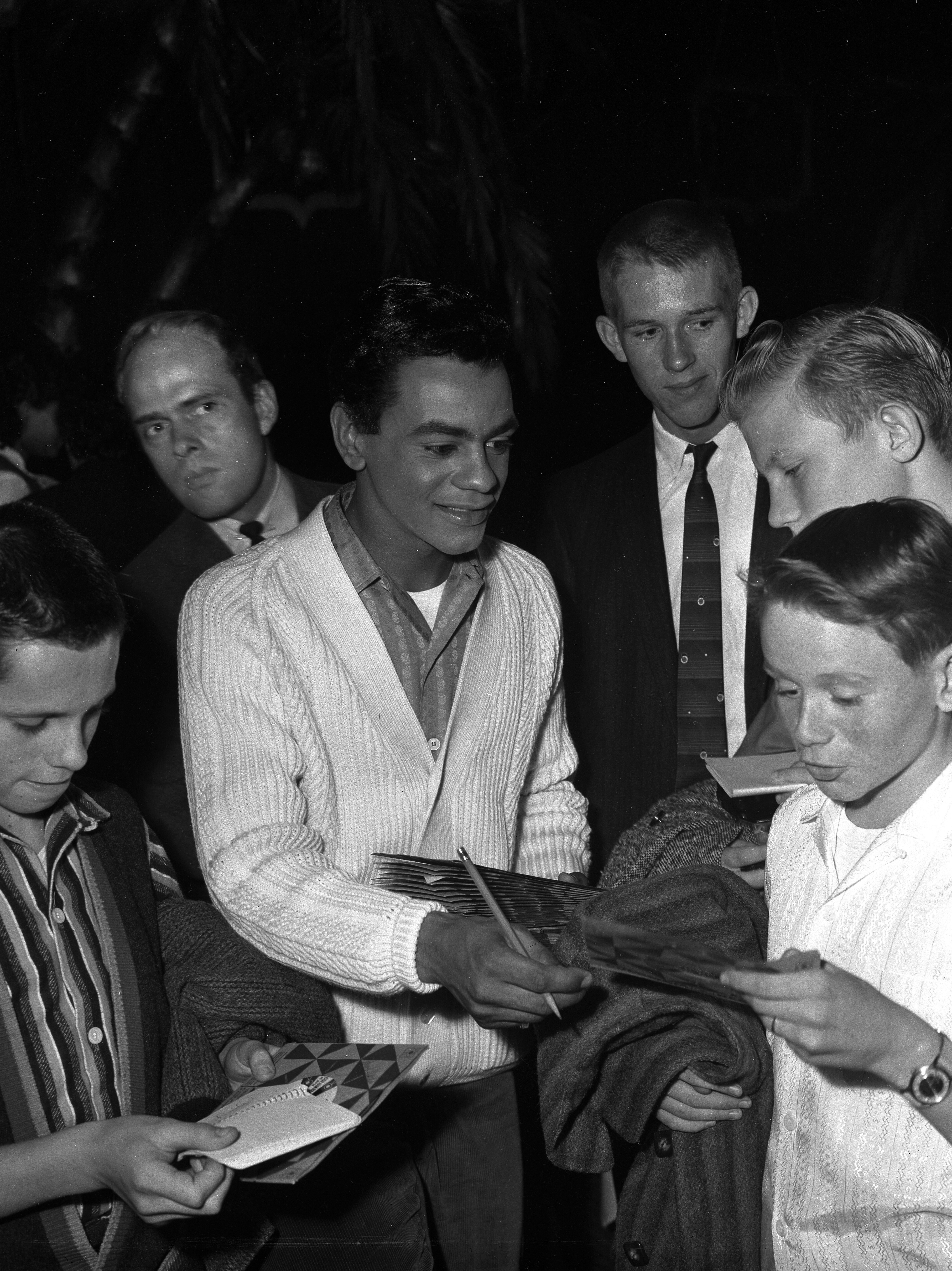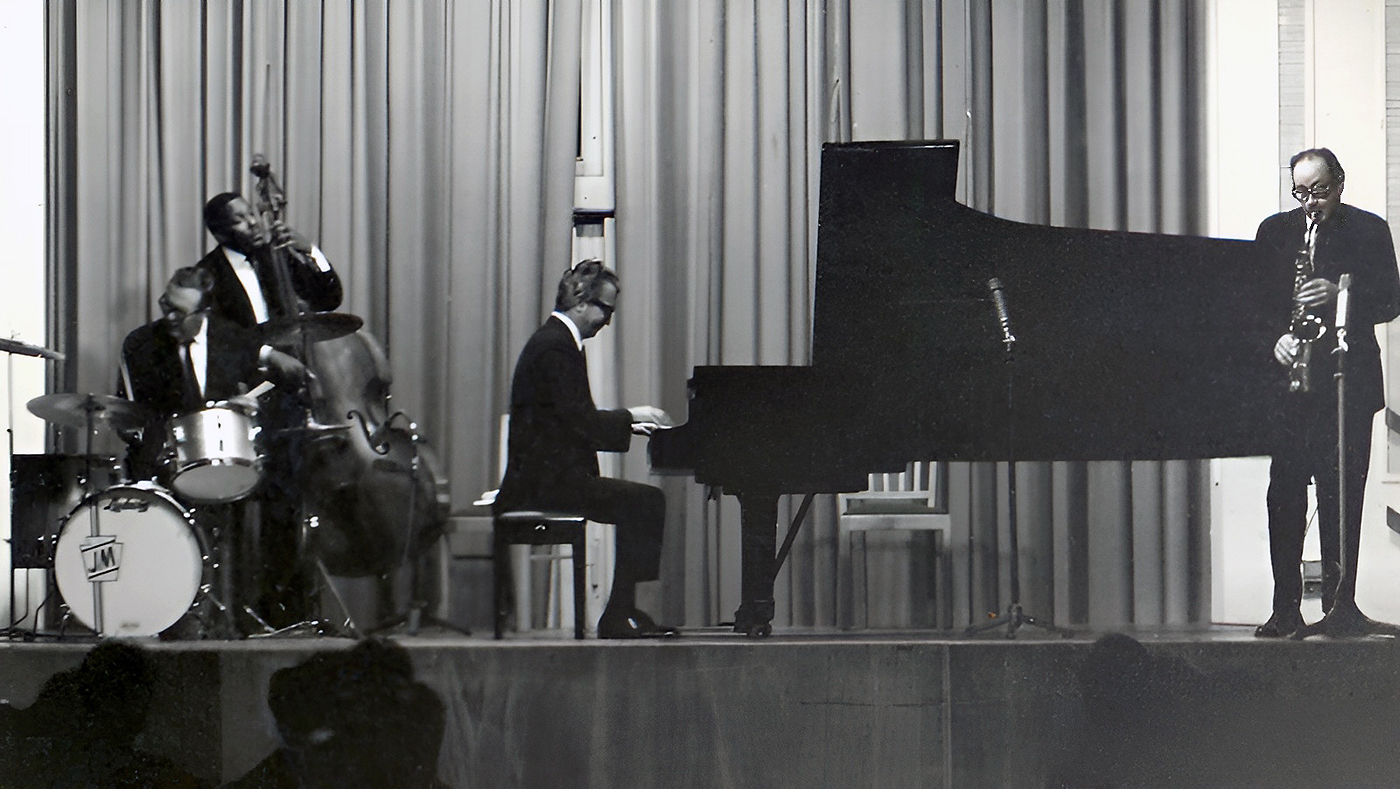|
Meet Marvelous Marilyn Maye
''Meet Marvelous Marilyn Maye'' is a studio album by American singer Marilyn Maye. It was released in August 1965 via RCA Victor and contained 12 tracks. It was the second album of Maye's career and her first with the RCA label. It contained songs from musicals and also featured covers of jazz vocal standards. It was reviewed positively by ''Billboard'' magazine following its release in 1965. Background Marilyn Maye was performing in nightclubs throughout the Midwest United States. In 1961, she recorded her debut studio album titled ''Marilyn...the Most'', which attracted the attention of Steve Allen. Exposure on his nationally syndicated television show brought her to the attention of RCA Victor. Maye then signed a recording contract with the label. Maye recorded several albums with the RCA label between 1965 and 1970. Her debut album with the label was issued in 1965 called ''Meet Marvelous Marilyn Maye''. Recording and content ''Meet Marvelous Marilyn Maye'' was recorded in 196 ... [...More Info...] [...Related Items...] OR: [Wikipedia] [Google] [Baidu] |
Marilyn Maye
Marilyn Maye McLaughlin (born April 10, 1928) is an American singer, musical theater actress and masterclass educator. With a career spanning eight decades, Maye has performed music in the styles of cabaret, Jazz music, jazz and Pop music, pop music. She has received one nomination from the Grammy Awards and had commercial success as a recording artist. Maye was raised in both Kansas and Iowa. With her mother's encouragement, Maye performed onstage and on the radio during her childhood. In her teenage years, she had her own radio program in Des Moines, Iowa. Maye performed locally during the 1940s and 1950s until being discovered in 1963 by Steve Allen, later appearing on his The Steve Allen Show, television show. She also began a 76-episode run on ''The Tonight Show Starring Johnny Carson''. This led to her signing a recording contract with RCA Records, RCA Victor. Between 1965 and 1970, Maye recorded a series of albums for RCA. Her debut studio album ''Meet Marvelous Marilyn ... [...More Info...] [...Related Items...] OR: [Wikipedia] [Google] [Baidu] |
Get Me To The Church On Time
"Get Me to the Church on Time" is a song composed by Frederick Loewe, with lyrics written by Alan Jay Lerner for the 1956 musical ''My Fair Lady'', where it was introduced by Stanley Holloway. It is sung by the cockney character Alfred P. Doolittle, the father of one of the show's two main characters, Eliza Doolittle. He has received a surprise bequest of four thousand pounds a year from an American millionaire, raising him to middle class respectability. Consequently, he feels he must marry Eliza's stepmother, the woman with whom he has been living for many years. Doolittle and his friends have one last spree before the wedding and the song is a plea to his friends not to let his drunken merriment forget his good intentions and make sure he gets to his wedding. Covers and parodies *On the children's show ''Sesame Street'', Oscar the Grouch and his girlfriend Grundgetta get engaged by accident, but they agree to get married anyway to have a huge trashy party. Amid the chaos of all ... [...More Info...] [...Related Items...] OR: [Wikipedia] [Google] [Baidu] |
The Song Is You
"The Song Is You" is a jazz standard composed by Jerome Kern with lyrics by Oscar Hammerstein II. It was written for their musical '' Music in the Air'' (1932) and sung in that show by Tullio Carminati. In the subsequent 1934 film, the song was recorded and filmed but cut from the final release. An instrumental of the song can still be heard under the opening credits. An early hit in 1932 was by Jack Denny and his Waldorf–Astoria Orchestra (vocal by Paul Small). In later years the song became often associated with Frank Sinatra, becoming the last song he performed with Tommy Dorsey. Many other artists have recorded the song over the years, including Charlie Parker. "The Song Is You" is the recurring musical theme of the 2003 Guy Maddin film '' The Saddest Music in the World''. Nine different versions of the song were arranged for the film by composer Christopher Dedrick, whose work received a Genie Award. Composer Alec Wilder writes that the song "attempts too dramatic a sta ... [...More Info...] [...Related Items...] OR: [Wikipedia] [Google] [Baidu] |
Johnny Mathis
John Royce Mathis (born September 30, 1935) is an American singer. Starting his 69-year career with singles of standard (music), standard music, Mathis is one of the best-selling recording artists of the 20th century and became highly popular as an album artist, with several of his albums achieving Music recording certification, gold or platinum status and 73 making the Billboard charts, ''Billboard'' charts. Mathis has received the Grammy Lifetime Achievement Award and has been inducted into the Grammy Hall of Fame for three recordings. Although frequently described as a romantic singer, his discography includes traditional pop, Latin American, soul music, soul, rhythm and blues, show tunes, Tin Pan Alley, soft rock, blues, country music, and even a few disco songs for his album ''Mathis Magic'' in 1979. Mathis has also recorded seven albums of Christmas music. In a 1968 interview, he cited Lena Horne, Nat King Cole, and Bing Crosby among his musical influences. Early life and ... [...More Info...] [...Related Items...] OR: [Wikipedia] [Google] [Baidu] |
Misty (song)
"Misty" is a jazz standard written and originally recorded in 1954 by pianist Erroll Garner. He composed it as an instrumental in the traditional Thirty-two-bar form, 32-bar format, and recorded it on July 27, 1954 for the album ''Contrasts (Erroll Garner album), Contrasts''. Lyrics were added later by Johnny Burke (lyricist), Johnny Burke. It appeared on Johnny Mathis' 1959 album ''Heavenly (Johnny Mathis album), Heavenly'', and this recording reached number 12 on the Billboard Hot 100, U.S. Pop Singles chart later that year. It has since become Mathis’ signature song. The song has been recorded by many other artists, including versions by Ella Fitzgerald, Sarah Vaughan, and Ray Stevens who released a hit country version in 1975. Recordings by both Johnny Mathis and Erroll Garner have been inducted into the Grammy Hall of Fame. It was ranked number 174 in the list of the Songs of the Century compiled by Recording Industry Association of America and National Endowment for the ... [...More Info...] [...Related Items...] OR: [Wikipedia] [Google] [Baidu] |
Dave Brubeck
David Warren Brubeck (; December 6, 1920 – December 5, 2012) was an American jazz pianist and composer. Often regarded as a foremost exponent of cool jazz, Brubeck's work is characterized by unusual time signatures and superimposing contrasting rhythms, Metre (music), meters, tonality, tonalities, and combining different styles and genres, like classic, jazz, and blues. Born in Concord, California, Brubeck was drafted into the US Army, but was spared from combat service when a International Red Cross and Red Crescent Movement, Red Cross show he had played at became a hit. Within the US Army, Brubeck formed one of the first racial integration, racially diverse bands. In 1951, he formed the Dave Brubeck Quartet, which kept its name despite shifting personnel. The most successful—and prolific—lineup of the quartet was the one between 1958 and 1968. This lineup, in addition to Brubeck, featured saxophonist Paul Desmond, bassist Eugene Wright and drummer Joe Morello. A U.S. Dep ... [...More Info...] [...Related Items...] OR: [Wikipedia] [Google] [Baidu] |
Take Five
"Take Five" is a jazz standard composed by Paul Desmond in 5 beat per measure, the melody relying on the blues scale, with harmony E-flat minor. It was first recorded in 1959 and is the third track on ''Time Out'' by the Dave Brubeck Quartet. Frequently covered by a variety of artists, the track is the biggest-selling jazz song of all time and a Grammy Hall of Fame inductee, and is often regarded as the greatest jazz standard of all time. Dave Brubeck was inspired to create an album based on odd time signatures during his state-sponsored 1958 Eurasia trip. The track was written after the Quartet's drummer, Joe Morello, requested a song in quintuple () meter. Desmond composed the melodies on Morello's rhythms while Brubeck arranged the song. The track's name is derived from its meter, and the injunction, "Take five", meaning "take a break for five minutes". The track is written in E minor and is in ternary (ABA) form. Released as a promotional single in September 1959, ... [...More Info...] [...Related Items...] OR: [Wikipedia] [Google] [Baidu] |
Cabin In The Sky (film)
''Cabin in the Sky'' is a 1943 American musical film based on the 1940 Broadway musical of the same name. The first feature film directed by Vincente Minnelli, ''Cabin in the Sky'' features an all-black cast and stars Ethel Waters, Eddie "Rochester" Anderson and Lena Horne. Waters and Rex Ingram reprise their roles from the Broadway production as Petunia and Lucifer Junior, respectively. The film was Horne's first and only leading role in an MGM musical. Louis Armstrong is also featured in the film as one of Lucifer Junior's minions, and Duke Ellington and his Orchestra have a showcase musical number in the film. In 2020, the film was selected for preservation in the United States National Film Registry by the Library of Congress as being "culturally, historically, or aesthetically significant." Plot Little Joe is a well-meaning yet weak man, whose attempts at redemption are cut short when he is killed over gambling debts by big-shot Domino Johnson. On his deathbed, Little J ... [...More Info...] [...Related Items...] OR: [Wikipedia] [Google] [Baidu] |
Sophie Tucker
Sophie Tucker (born Sofia Kalish; January 13, 1886 – February 9, 1966) was a Russian-born American singer, comedian, actress, and radio personality. Known for her powerful delivery of comical and risqué songs, she was one of the most popular entertainers in the U.S. during the first half of the 20th century. She was known by the nickname "the Last of the Red-Hot Mamas". Early life and education Tucker was born Sofiya "Sonya" Kalish ( Ukrainian: Соня Калиш; ) in 1886 to a Jewish family in Tulchyn, Russian Empire, now Vinnytsia Oblast, Ukraine. (Sonya is a pet name for Sofiya in Ukrainian as well as for Sofya, the Yiddish form of the name Sophia.) They arrived in Boston on September 26, 1887. The family adopted the surname Abuza before immigrating, her father fearing repercussions for having deserted from the Imperial Russian Army. The family lived in Boston's North End for eight years, then settled in Hartford, Connecticut, and opened a restaurant. At a young age, ... [...More Info...] [...Related Items...] OR: [Wikipedia] [Google] [Baidu] |
Hello, Dolly! (musical)
''Hello, Dolly!'' is a 1964 musical with lyrics and music by Jerry Herman and a book by Michael Stewart, based on Thornton Wilder's 1938 farce '' The Merchant of Yonkers'', which Wilder revised and retitled '' The Matchmaker'' in 1954. The musical follows the story of Dolly Gallagher Levi, a strong-willed matchmaker, as she travels to Yonkers, New York, to find a match for the miserly "well-known unmarried half-a-millionaire" Horace Vandergelder. ''Hello, Dolly!'' debuted at the Fisher Theater in Detroit on November 18, 1963, directed and choreographed by Gower Champion and produced by David Merrick. It starred stage performer Carol Channing as Dolly Gallagher Levi, a role theatrical audiences of the world would forever associate with her. The show moved to Broadway in 1964, winning 10 Tony Awards, including Best Musical and Best Actress in a Musical for Channing. The awards earned set a record which the play held for 37 years. The show album ''Hello, Dolly! An Original Cast ... [...More Info...] [...Related Items...] OR: [Wikipedia] [Google] [Baidu] |





